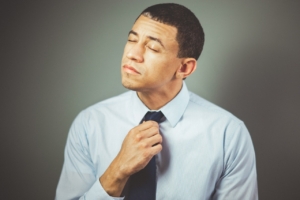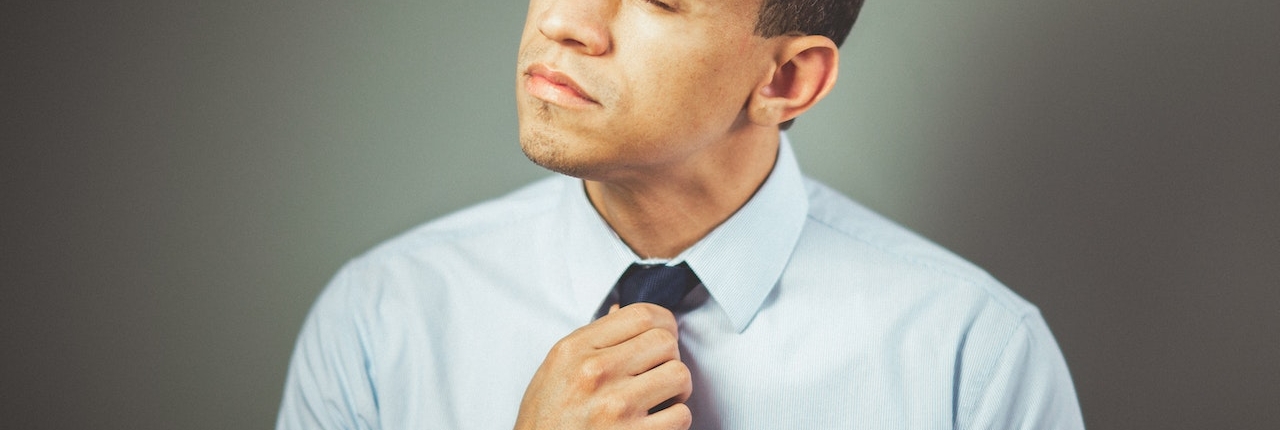As men, we do our best to strive to achieve our goals, but at times we may struggle and do not know why. Avoidance of addressing this behavior may lead to anxiety in our lives. What we need to understand is that it is common and that the symptoms of anxiety can look different in men than women.
Becoming more aware of the signs and symptoms can help us with our mental health. In this article, we’ll explore anxiety symptoms specific to men, shedding light on this often-overlooked aspect of mental health.
Physical symptoms of anxiety.
 Men may manifest anxiety through physical symptoms more often than emotional ones. These symptoms can include muscle tension, headaches, stomach discomfort, and even an increased heart rate. Some men may also experience chronic fatigue or difficulty sleeping, which can further exacerbate their anxiety.
Men may manifest anxiety through physical symptoms more often than emotional ones. These symptoms can include muscle tension, headaches, stomach discomfort, and even an increased heart rate. Some men may also experience chronic fatigue or difficulty sleeping, which can further exacerbate their anxiety.
When it comes to anxiety in men, physical symptoms often take center stage. Unlike women, who may openly express their emotional distress, men are more prone to internalizing their feelings and experiencing them through physical discomfort. This can be perplexing, both for the individuals themselves and those around them.
Muscle tension is a common physical symptom in men with anxiety. They might find themselves constantly clenching their jaw or fists, or they may experience unexplained body aches. This physical tension can lead to persistent discomfort and, in some cases, chronic pain.
Headaches are another prevalent physical symptom. Men with anxiety often report tension headaches or migraines. These headaches can be debilitating, making it even more challenging to manage daily stressors.
Stomach discomfort, often referred to as “butterflies” or a “knot in the stomach,” is a frequent complaint. Men might experience nausea, indigestion, or stomach cramps. These symptoms can be so severe that they interfere with their ability to eat properly.
Increased heart rate, palpitations, and a sense of unease can also accompany anxiety in men. These symptoms can mimic the sensations of a heart attack, causing even more anxiety and distress.
Moreover, some men with anxiety suffer from chronic fatigue, which can be debilitating. Anxiety can disrupt sleep patterns, leading to insomnia or restless sleep. This persistent exhaustion can make it challenging to concentrate and handle daily responsibilities.
Irritability and anger as symptoms of anxiety.
Men are more likely to display their anxiety as irritability and anger rather than sadness or fear. This can lead to outbursts, frustration, and strained relationships. Recognizing this as a symptom of anxiety and not merely a personality trait is essential for addressing the underlying issue.
Irritability and anger are common emotional responses to anxiety in men. Rather than expressing their anxiety through sadness or tears, many men become easily irritable and prone to angry outbursts. This can be challenging for both the individuals themselves and those around them, as it often leads to strained relationships.
One of the reasons men are more likely to exhibit irritability and anger is the societal pressure to appear strong and in control. Expressing sadness or fear may be perceived as a sign of vulnerability, so men may opt for anger as a more socially acceptable emotional response.
It’s important to recognize that irritability and anger are valid symptoms of anxiety in men. Understanding that these emotions may be a manifestation of an underlying anxiety issue can help individuals seek appropriate support and coping strategies.
Additionally, managing anger and irritability is crucial for improving relationships. When loved ones understand that these emotions may be linked to anxiety, they can offer support and empathy rather than becoming further frustrated or resentful.
Risk-taking behavior.
Some men with anxiety may engage in risk-taking behaviors to cope with their internal turmoil. These behaviors can range from reckless driving and substance abuse to thrill-seeking activities. These actions can provide a temporary escape from anxiety but often result in more significant problems
Risk-taking behavior is another way that anxiety may manifest in men. Rather than facing their emotional distress head-on, some men may seek thrill-seeking activities or engage in risky behaviors as a temporary distraction from their anxiety. Unfortunately, this coping mechanism can lead to severe consequences.
Reckless driving is one such risk-taking behavior. Men with anxiety may engage in aggressive or dangerous driving habits to release tension. This not only endangers their lives but also poses a risk to other road users.
Substance abuse is another common avenue for risk-taking among men with anxiety. Alcohol, drugs, and even excessive caffeine consumption are often used as self-medication to numb anxious feelings. While these substances may provide temporary relief, they can exacerbate anxiety in the long run and lead to addiction.
Thrill-seeking activities, such as extreme sports or adrenaline-pumping hobbies, are also used to distract from anxiety. While these activities may provide a temporary escape, they can result in physical injuries and emotional turmoil when the initial rush subsides.
It’s essential to recognize risk-taking behavior as a symptom of anxiety in men and encourage healthier coping mechanisms. Engaging in safer activities and seeking professional help are crucial steps in addressing anxiety and reducing the risks associated with reckless behavior.
Avoidance.
Men may resort to avoidance as a way of dealing with their anxiety. This can manifest as avoiding social situations, work responsibilities, or even seeking help for their mental health. It’s crucial to encourage men to face their fears and seek support instead of retreating from them.
Avoidance is a common coping mechanism for anxiety in men. Rather than confronting the sources of their anxiety, they may choose to avoid them altogether. This can manifest in various ways and significantly impact their lives.
Social avoidance is a prevalent symptom in men with anxiety. They may avoid social gatherings, parties, or even one-on-one interactions with friends and family. This social isolation can lead to feelings of loneliness and further exacerbate their anxiety.
In the workplace, men may dodge work-related responsibilities or projects that trigger their anxiety. This can lead to decreased job performance and potential career setbacks.
Avoiding seeking help is another critical issue. Due to the stigma surrounding men’s mental health, some men may resist seeking therapy or counseling, fearing it makes them appear weak or vulnerable. Encouraging men to face their anxiety and seek professional help is essential.
Avoidance is a short-term strategy that only exacerbates anxiety in the long run. Over time, avoiding anxiety-provoking situations can reinforce fear and make it even more challenging to confront them. Encouraging men to face their fears and seek support is crucial for managing anxiety effectively.
Substance abuse.
 Self-medication is a prevalent coping mechanism for men with anxiety. Alcohol, drugs, or even excessive caffeine consumption can provide temporary relief, but they often worsen anxiety symptoms in the long run. Recognizing the connection between substance abuse and anxiety is essential for proper treatment.
Self-medication is a prevalent coping mechanism for men with anxiety. Alcohol, drugs, or even excessive caffeine consumption can provide temporary relief, but they often worsen anxiety symptoms in the long run. Recognizing the connection between substance abuse and anxiety is essential for proper treatment.
Substance abuse is a common means of self-medicating anxiety in men. Rather than seeking professional help or healthy coping strategies, some men may turn to alcohol, drugs, or excessive caffeine consumption to numb their anxious feelings.
Alcohol is often used as a means of self-medication for anxiety. A drink or two can provide temporary relief, as it has a sedative effect on the central nervous system. However, excessive alcohol consumption can lead to dependence, addiction, and worsening anxiety symptoms.
Drug abuse, including both prescription and recreational drugs, is another way men may attempt to cope with anxiety. These substances can provide an escape from anxious thoughts and feelings, but they often lead to addiction, severe health issues, and social consequences.
Excessive caffeine consumption is also linked to anxiety. Men with anxiety may consume excessive amounts of caffeine to stay alert and distract themselves from their anxious thoughts. However, high caffeine intake can exacerbate anxiety symptoms and lead to restlessness and insomnia.
It’s essential to recognize substance abuse as a symptom of anxiety in men and encourage healthier coping strategies. Seeking professional help to address both the underlying anxiety issue and any substance abuse problems is crucial for long-term recovery.
Isolation.
Men may isolate themselves when experiencing anxiety and withdraw from friends and family. This isolation can intensify feelings of loneliness and contribute to the worsening of anxiety symptoms. Encouraging men to maintain social connections and seek support is crucial.
Isolation is a common response to anxiety in men. Rather than reaching out for support, they may withdraw from social interactions and isolate themselves from friends and family. This isolation can exacerbate feelings of loneliness and further worsen anxiety symptoms.
Social isolation can take various forms, from avoiding social gatherings to retreating from one-on-one interactions. Men may spend more time alone, engaging in solitary activities or hobbies to distract themselves from their anxiety.
It’s crucial to recognize social isolation as a symptom of anxiety in men and encourage them to maintain social connections. Interacting with friends, family, or support groups can provide emotional support and help alleviate feelings of isolation.
Agitation and restlessness as symptoms of anxiety.
Anxiety in men can manifest as agitation and restlessness, making it difficult to sit still or relax. They may constantly feel the need to be in motion, which can be exhausting and frustrating for both the individual and those around them.
Agitation and restlessness are common emotional and behavioral symptoms of anxiety in men. Rather than experiencing their anxiety through paralyzing fear or sadness, men may become highly agitated and restless. This constant state of inner turmoil can be exhausting for them and frustrating for those around them.
Men with anxiety may find it challenging to sit still, relax, or stay focused on a single task. They might feel the need to be in constant motion, whether that involves fidgeting, pacing, or engaging in activities that provide distraction from their anxious thoughts.
This state of agitation and restlessness can lead to difficulty in maintaining relationships and performing well in work or school. It’s essential to recognize these symptoms and encourage healthier coping strategies, such as mindfulness or relaxation techniques, to manage anxiety effectively.
Workaholism.
To distract themselves from their anxiety, some men throw themselves into their work, becoming workaholics. While this may provide temporary relief, it often leads to burnout and further stress, exacerbating anxiety symptoms.
Workaholism is another way that men may attempt to cope with anxiety. Rather than facing their emotional distress, they may immerse themselves in their work to distract from anxious thoughts. While this may provide temporary relief, it often leads to burnout and worsened anxiety symptoms.
 Men who become workaholics may dedicate excessive hours to their jobs, neglecting other important aspects of their lives, such as family, social relationships, and self-care. The constant need to achieve and be productive can be driven by an internal desire to escape from anxious feelings.
Men who become workaholics may dedicate excessive hours to their jobs, neglecting other important aspects of their lives, such as family, social relationships, and self-care. The constant need to achieve and be productive can be driven by an internal desire to escape from anxious feelings.
While a strong work ethic is generally viewed as a positive trait, workaholism can have severe consequences. It can lead to physical and mental health issues, strained relationships, and an unrelenting cycle of stress and anxiety.
Recognizing workaholism as a symptom of anxiety in men is crucial. Encouraging a healthier work-life balance and the use of relaxation techniques can help individuals manage anxiety more effectively.
Emotional numbness.
Men may experience emotional numbness or a sense of detachment from their feelings as a way of coping with anxiety. This can make it challenging for them to express their emotions or engage in meaningful relationships.
Emotional numbness and a sense of detachment from their feelings are common coping mechanisms for anxiety in men. Rather thanconfronting their emotions, they may choose to disconnect from them, making it challenging to express themselves or engage in meaningful relationships.
Men who experience emotional numbness often describe a sense of emptiness or feeling emotionally flat. They may struggle to connect with their own emotions, let alone share them with others. This emotional detachment can lead to difficulty in maintaining close relationships and emotional intimacy.
Recognizing emotional numbness as a symptom of anxiety is essential for individuals and their loved ones. Encouraging open communication and providing support can help men with anxiety reconnect with their emotions and improve their overall well-being.
Conclusion.
Be strong and of good courage, do not fear nor be afraid of them; for the Lord your God, He is the One who goes with you. He will not leave you nor forsake you. – Deuteronomy 31:6
Understanding what you are feeling is important to overcoming anxiety. Therapy is a place to seek assistance and guidance to continue to grow as an individual. As men, we need to seek help and know that it is available to us. God did not put us on this earth to live alone and has blessed us with the resources to help all of us overcome whatever is before us.
“Blurred Man”, Courtesy of Vijay Sadasivuni, Pexels.com, CC0 License; “Knocking Over Boxes”, Courtesy of SHVETS production, Pexels.com, CC0 License; “Sunset on the Beach”, Courtesy of Travis Rupert, Pexels.com, CC0 License; “Discomfort”, Courtesy of Craig Adderley, Pexels.com, CC0 License


